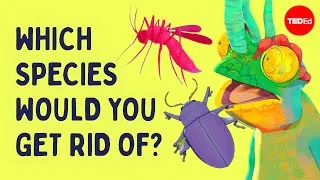Adverbs in English - Learn All About English Adverbs
英語語法 — 副詞
659,283 views ・ 2018-06-23
請雙擊下方英文字幕播放視頻。
00:01
Hi, I’m Stephanie.
0
1180
1840
嗨,我是Stephanie。
00:03
Welcome to Oxford Online English!
1
3020
2259
歡迎來到Oxford Online English!
00:05
In this lesson, you can learn about adverbs.
2
5279
2381
在本節課裡,您能學習副詞。
00:07
What do adverbs do?
3
7660
2330
副詞用途是什麼?
00:09
What’s the difference between adjectives
and adverbs?
4
9990
4450
形容詞與副詞之間的
區別是什麼?
00:14
How do you use adverbs in English?
5
14440
2730
您怎樣運用英文副詞?
00:17
You can learn the answers to these questions
in this lesson.
6
17170
3040
您可以在本節課裡學到
這些問題的答案。
00:20
Let’s start with a challenge.
7
20210
2470
我們以一個挑戰開始本節課。
00:22
Can you write down five English adverbs?
8
22680
3550
您能寫出五個英文副詞嗎?
00:26
Pause the video and do it now.
9
26230
2620
暫停影片現在開始做。
00:28
Ready?
10
28850
1090
準備好了嗎?
00:29
I’m guessing you wrote down words ending
with -ly.
11
29940
5870
我猜您寫了以ly結尾的單字。
00:35
For example:
12
35810
1490
例如:
00:37
quickly
slowly
13
37300
2110
quickly
slowly
00:39
Or: clearly
14
39410
4380
或: clearly
00:43
These are all adverbs.
15
43790
1670
這都是副詞。
00:45
However, there are many other adverbs.
16
45460
3170
然而,有很多其他的副詞。
00:48
Many of them don’t end with -ly, like these:
17
48630
4580
他們之中有很多不是ly結尾的,
像是這些:
00:53
fast
too
18
53210
1000
fast
too
00:54
Or: often
19
54210
1960
或:often
00:56
Many adverbs aren’t just one word.
20
56170
3090
很多副詞不僅只是一個單字。
00:59
Adverbs can be two words, or even whole phrases.
21
59260
4069
副詞可以是兩個單字,
或甚至是整個句子。
01:03
For example:
22
63329
1201
例如:
01:04
last week
in a very strange way
23
64530
4350
last week
in a very strange way
01:08
for the last six years
24
68880
2570
for the last six years
01:11
So you might be thinking: what do adverbs
actually do?
25
71450
4430
所以您也許在想:副詞
實際上在做什麼?
01:15
What are adverbs?
26
75880
6050
副詞是什麼?
01:21
Adverbs are describing words.
27
81930
1970
副詞是一個修飾單字。
01:23
They add information to something else in
your sentence.
28
83900
4329
他們修飾句子裡的
某些東西。
01:28
Adverbs can describe many different things.
29
88229
3041
副詞可以修飾很多不同的東西。
01:31
You can use an adverb to describe a verb,
like this:
30
91270
3709
您能用副詞來修飾一個動詞,
像是這個:
01:34
He speaks very loudly.
31
94979
2331
He speaks very loudly.
01:37
Does everyone drive that fast in this city?
32
97310
3730
Does everyone drive that fast in this city?
01:41
I think I sound better than I did the first
time.
33
101040
3539
I think I sound better than I did the first
time.
01:44
The adverbs
add information to the verbs
34
104579
5821
副詞修飾動詞。
01:50
These adverbs all describe the verbs by saying
how someone did something.
35
110400
5990
這些副詞都通過說某人怎樣
做某事來修飾動詞。
01:56
For example, look at the first sentence: he
speaks very loudly.
36
116390
6360
例如,看句一:
He speaks very loudly.
02:02
The adverb loudly tells you how he speaks.
37
122750
4790
副詞loudly告訴您他怎麼說。
02:07
You can also use adverbs to add information
to verbs in other ways.
38
127540
5519
您也能運用副詞以其他方式
來修飾動詞。
02:13
For example:
39
133059
1000
例如:
02:14
I kind of enjoyed it, but it could have been
better.
40
134059
4411
I kind of enjoyed it, but it could have been
better.
02:18
We talked a little, but we didn’t have time
to discuss everything.
41
138470
4719
We talked a little, but we didn’t have time
to discuss everything.
02:23
What else?
42
143189
1000
What else?
02:24
Well, you can use an adverb to show when,
where, or how often something happens.
43
144189
7401
好,您能用副詞來顯示某事在什麼
時候、在哪裡或怎樣發生。
02:31
For example:
44
151590
1000
例如:
02:32
Let’s meet at eight o’clock.
45
152590
2599
Let’s meet at eight o’clock.
02:35
She moved overseas after she graduated.
46
155189
3160
She moved overseas after she graduated.
02:38
I don’t often have time to cook for myself.
47
158349
4771
I don’t often have time to cook for myself.
02:43
Remember that adverbs can be phrases; adverbs
aren’t always single words.
48
163120
5759
記住副詞可以是片語;
副詞不是總是一個單字。
02:48
Another point: adverbs can add information
to adjectives, or even to other adverbs!
49
168879
7551
另一個重點:副詞可以修飾形容詞,
甚至修飾其他副詞!
02:56
How does this work?
50
176430
1559
這是怎樣運用的呢?
02:57
Can you think of any examples of this?
51
177989
3021
您可以想出任何這類例子嗎?
03:01
Here are some examples:
52
181010
2160
這有一些例句:
03:03
It was a really exciting trip.
53
183170
2429
It was a really exciting trip.
03:05
It’s too hot in here.
54
185599
3070
It’s too hot in here.
03:08
She works incredibly hard.
55
188669
3400
She works incredibly hard.
03:12
You can see two examples where an adverb describes
an adjective…
56
192069
4530
您可以看到兩個副詞修飾
形容詞的例句。
03:17
…and one example where an adverb describes
another adverb.
57
197599
5780
以及一個副詞修飾
另一個副詞的例句。
03:23
Remember that hard here is an adverb, because
it describes a verb, works.
58
203379
6071
記住,在這裡,hard是一個副詞,
因為它修飾一個動詞works。
03:29
Is that everything?
59
209450
1599
那就是全部嗎?
03:31
No, not quite!
60
211049
2220
不是,不完全是!
03:33
Adverbs can do one more thing.
61
213269
2401
副詞還能多做一件事。
03:35
Adverbs can also express your opinion about
a situation.
62
215670
4249
副詞也可以表達您
對一個情況的觀點。
03:39
Look at three sentences:
63
219919
1871
看三個例句:
03:41
She’s obviously the best of the candidates
we’ve seen so far.
64
221790
5140
She’s obviously the best of the candidates
we’ve seen so far.
03:46
Apparently, they’re not sure they want to
get married any more.
65
226930
4959
Apparently, they’re not sure they want to
get married any more.
03:51
Fortunately, we were able to recover most
of the files.
66
231889
5190
Fortunately, we were able to recover most
of the files.
03:57
These adverbs are different because they don’t
just add information to one word; they add
67
237079
5450
這些副詞是不同的,因為他們
不僅修飾一個單字,
04:02
information to the whole sentence.
68
242529
2580
他們也修飾整個句子。
04:05
So, you can see that adverbs can do many,
many different things.
69
245109
5041
所以,您可以看到副詞做
很多不同的事情。
04:10
They can describe verbs, adjectives, other
adverbs, or even whole sentences.
70
250150
6610
他們可以修飾動詞、形容詞、其他
副詞,或甚至整個句子。
04:16
But, there’s a connection.
71
256760
3009
但是有一個連接。
04:19
Do you remember what we said at the start
of this section?
72
259769
4811
您記得在這個單元的
開始我們說什麼嗎?
04:24
Adverbs describe other things.
73
264580
1950
副詞修飾其他東西。
04:26
They add information to something else in
your sentence.
74
266530
3449
他們修飾您句子裡的某些東西。
04:29
Now, let’s look at our next question: how
do you form adverbs?
75
269980
7920
現在,我們看看下一個問題:
您怎樣造副詞?
04:37
Actually, this question isn’t always relevant.
76
277900
2980
實際上,這個問題不是總是相關的。
04:40
For most English adverbs, you don’t need
to ‘form’ them.
77
280889
4351
大部分的副詞,您不需要
去“造”他們。
04:45
They just exist!
78
285240
2120
他們已經存在!
04:47
For example: too, very, sometimes, always,
here and soon are all adverbs, and you don’t
79
287360
7320
例如:too, very, sometimes, always,
幾乎所有的副詞都有了,您不需要
04:54
need to do anything to them.
80
294680
2690
去造他們。
04:57
So, why ask the question at all?
81
297370
4070
那麼,為什麼問這個問題?
05:01
For some adverbs, you can form them from adjectives.
82
301440
4080
有些副詞,您可以用
形容詞來造他們。
05:05
This is mostly true for adverbs which describe
verbs: adverbs which describe how someone
83
305520
6230
這對修飾動詞的副詞來說,
幾乎就是這樣:副詞
05:11
does something.
84
311750
1520
修飾某人怎樣做某事。
05:13
For example, slow is an adjective.
85
313270
3570
例如,slow是一個形容詞。
05:16
How can you make an adverb from it?
86
316840
2540
您可以怎麼用它來造一個副詞呢?
05:19
Look at a sentence and complete the missing
word:
87
319380
2960
看一個例句,並完成
空缺的單字:
05:22
He eats very s________.
88
322340
1910
He eats very s________.
05:24
Do you know the answer?
89
324250
3430
您知道答案嗎?
05:27
The answer is slowly.
90
327680
2000
答案是slowly。
05:29
You add -ly to the adjective to make an adverb.
91
329680
4500
您給形容詞添加ly來
造一個副詞。
05:34
This is the same for many adverbs which describe
verbs.
92
334180
5040
這對很多修飾動詞的副詞
來說是相同的。
05:39
For example:
93
339220
1319
例如:
05:40
quiet → quietly
nice → nicely
94
340539
5530
quiet → quietly
nice → nicely
05:46
clear → clearly
95
346069
3011
clear → clearly
05:49
Can you use these adverbs in a sentence?
96
349080
2790
您可以在句子裡用這些副詞嗎?
05:51
Pause the video and write down three sentences
using these adverbs.
97
351870
6440
暫停影片並寫下三個使用
這些副詞的句子。
05:58
Of course, there are many possibilities!
98
358310
3109
當然,有很多可能性。
06:01
Here are some suggestions:
99
361419
2120
這有一些建議:
06:03
Everyone was sitting quietly and reading.
100
363539
4451
Everyone was sitting quietly and reading.
06:07
He sings very nicely.
101
367990
2989
He sings very nicely.
06:10
You clearly told me that you would be here
at ten thirty.
102
370979
3690
You clearly told me that you would be here
at ten thirty.
06:14
However, even here, you can’t just think
‘add -ly to an adjective’.
103
374669
5470
然而,在這,您不能只想"給
一個形容詞添加ly"。
06:20
It doesn’t always work!
104
380139
2210
那不是總是有用的。
06:22
First, if an adjective ends with -y, you need
to change -y to -ily to make an adverb.
105
382349
8000
首先,如果一個形容詞以y結尾,您
需要改變y成ily來造一個副詞。
06:30
For example:
106
390349
1290
例如:
06:31
healthy → healthily
lazy → lazily
107
391639
5000
healthy → healthily
lazy → lazily
06:36
happy → happily
108
396639
1861
happy → happily
06:38
Secondly, some words don’t change their
form.
109
398500
5210
其次,某些單字不改變他們的形式。
06:43
The same word can be either an adjective or
an adverb.
110
403710
4340
同一個單字可以是一個形容詞
或一個副詞。
06:48
For example:
111
408050
1209
例如:
06:49
He’s a really fast worker.
112
409259
3490
He’s a really fast worker.
06:52
He works really fast.
113
412749
1551
He works really fast.
06:54
You’re a better dancer than you used to
be.
114
414300
4839
You’re a better dancer than you used to
be.
06:59
You dance better than you used to.
115
419139
4520
You dance better than you used to.
07:03
Fast and better can be used as adjectives
or adverbs, and the form of the word doesn’t
116
423659
6881
Fast和better能擔當形容詞或
副詞,而單字的形式
07:10
change.
117
430540
1149
沒有改變。
07:11
Thirdly, some adjectives already end in -ly
like ugly, friendly, likely or oily.
118
431689
8211
再次,一些形容詞已經用ly結尾了,
像是ugly、friendly、likely或oily。
07:19
These adjectives can’t be made into adverbs.
119
439900
3319
不能用這些形容詞造副詞。
07:23
Finally, some adverbs are irregular.
120
443219
2980
最後,一些副詞是不規則的。
07:26
Words which don’t change, like fast or better,
are examples of irregular adverbs.
121
446199
7161
單字沒有改變,像是fast或better,
是不規則副詞的例子。
07:33
There’s one more important one: what’s
the adverb from the adjective good?
122
453360
7570
還有一個要點:什麼是
形容詞good的副詞?
07:40
The answer is well.
123
460930
2160
答案是well。
07:43
For example:
124
463090
1020
例如:
07:44
She’s a good writer.
125
464110
2970
She’s a good writer.
07:47
She writes well.
126
467080
2190
She writes well.
07:49
Now, you know how to form adverbs from adjectives.
127
469270
5570
現在,您知道怎樣用形容詞
來造副詞。
07:54
Remember that you don’t need to ‘form’
most adverbs.
128
474840
3780
記住,您不需要“造”
大部分的副詞。
07:58
Most adverbs are ready for you to use, and
you don’t have to do anything to them!
129
478620
4990
大部分的副詞已經存在,您可以使用,
您為此不必做任何事情。
08:03
So, now seems like a good time to ask a new
question: what’s the difference between
130
483610
6380
所以,現在看上去像是一個好時機
來問一個新問題:形容詞
08:09
adjectives and adverbs?
131
489990
5350
與副詞之間的區別是什麼?
08:15
Hopefully, you have enough information from
parts one and two to answer this question.
132
495340
6379
希望您從單元一、二得到足夠
的資訊來回答這個問題。
08:21
Do you know the answer?
133
501719
2880
您知道答案嗎?
08:24
Adjectives and adverbs both describe other
words.
134
504599
4761
形容詞和副詞兩者都
修飾其他單字。
08:29
Adjectives describe nouns.
135
509360
2200
形容詞修飾名詞。
08:31
For example:
136
511560
1090
例如:
08:32
Are you a good cook?
137
512650
3199
Are you a good cook?
08:35
He has a loud voice.
138
515849
1771
He has a loud voice.
08:37
My computer is so slow!
139
517620
5109
My computer is so slow!
08:42
Adverbs describe everything else: verbs, adjectives,
adverbs and whole sentences.
140
522729
6401
副詞修飾其他所有的東西:動詞、
形容詞、副詞和整個句子。
08:49
That sounds easy, right?
141
529130
1660
那聽上去容易,對嗎?
08:50
So, let’s test your skills!
142
530790
3099
那麼,我們來測驗您的技能!
08:53
Look at four sentences.
143
533889
1741
看四個例句。
08:55
Is the word in red an adjective or an adverb?
144
535630
5230
紅色的單字是一個形容詞
還是一個副詞?
09:00
It’s unlikely that we’ll be there on time.
145
540860
5430
It’s unlikely that we’ll be there on time.
09:06
I found the exam really hard.
146
546290
5099
I found the exam really hard.
09:11
I worked really hard preparing for the exam.
147
551389
4481
I worked really hard preparing for the exam.
09:15
He hardly studied at all, but he got a high
score!
148
555870
6120
He hardly studied at all, but he got a high
score!
09:21
What do you think?
149
561990
1120
您怎麼想的?
09:23
Pause the video if you want more time to think
about it.
150
563110
5330
如果想要很多時間來
考慮它,暫停影片。
09:28
Unlikely and hard are adjectives.
151
568440
4690
Unlikely和hard是形容詞。
09:33
Hard and hardly are adverbs.
152
573130
4680
Hard和hardly是一個副詞。
09:37
Did you get the right answers?
153
577810
2120
您的回答正確嗎?
09:39
There are two things to pay attention to here.
154
579930
3380
在這有兩件事要注意。
09:43
One: the form of the word doesn’t tell you
if it’s an adjective or an adverb.
155
583310
7010
一:單字的形式沒有告訴您它是
一個形容詞或是一個副詞。
09:50
Unlikely ends in -ly, but it’s not an adverb;
it’s an adjective.
156
590320
5420
Unlikely以ly結尾,但是它不是一個
副詞;它是一個形容詞。
09:55
Hard in the third sentence doesn’t end in
-ly, but it’s an adverb which describes
157
595740
5570
在句三裡的Hard沒有以ly結尾,
但是它是一個修飾動詞
10:01
a verb.
158
601310
1870
的副詞。
10:03
Two: the same word can be an adjective or
an adverb in different sentences, like hard,
159
603180
6820
二:同一個單字在不同句子裡可以
是一個形容詞或一個副詞,像是hard。
10:10
which is an adjective in the second sentence,
but an adverb in the third sentence.
160
610000
5180
它在句二裡是一個形容詞,
但在句三裡是一個副詞。
10:15
So, what can you do here?
161
615180
3469
那麼,這裡您的答案是什麼?
10:18
You can’t depend on memory.
162
618649
2211
您不能依靠記憶。
10:20
If you think something like, ‘Hard is an
adjective’, that won’t work all the time.
163
620860
5610
如果您認為某些事情像是,“Hard是一個形容
詞”,並非任何時候都是那樣的。
10:26
Don’t look at the form of the word; look
at what the word does in the sentence.
164
626470
5640
不要看單字的形式;看單字
在句子裡做什麼用。
10:32
Does the word describe a noun?
165
632110
1720
單字修飾一個名詞嗎?
10:33
It’s an adjective.
166
633830
2470
它是一個形容詞。
10:36
Does it describe something else: a verb, an
adjective, another adverb, or the whole sentence?
167
636300
8300
它修飾其他東西:一個動詞、一個
形容詞、另一個副詞或整個句子?
10:44
It’s an adverb.
168
644600
1739
那是一個副詞。
10:46
Next, let’s look at one more important question:
how do you use adverbs in a sentence?
169
646339
7500
接下來,我們多看一個重要問題:
您怎樣在一個句子裡運用副詞?
10:53
More specifically: where should you put the
adverb?
170
653840
6080
更具體地說:您把副詞擺在哪裡?
10:59
Let’s start with a simple point: word order
rules for adverbs in English are complicated.
171
659920
6280
我們用一個簡單的契入點開始:英文裡,
副詞的單字順序規則是複雜的。
11:06
There are many rules, and as usual the rules
don’t work all of the time.
172
666209
6341
有很多規則,和往常一樣,
規則並非總是有效的。
11:12
So, if you want to use an adverb and you’re
not sure where it should go in the sentence,
173
672550
6600
那麼,如果您想去運用一個副詞,您不確定
應當把它擺在句子裡的什麼地方,
11:19
trust your instinct first.
174
679150
1920
首先相信您的直覺。
11:21
If it sounds right, it probably is.
175
681070
3360
如果那聽上去是對的,
那是可行的。
11:24
If you want to understand word order rules
in depth, you need to divide adverbs into
176
684430
5290
如果您想深度理解單字順序,
您需要把副詞分成
11:29
five different categories.
177
689720
2480
五個不同類別。
11:32
You already saw these categories in part one,
although we didn’t give them names.
178
692200
6329
您已經在單元一裡看到了這些類別,
儘管我們沒有給出它們的名字。
11:38
Let’s review now!
179
698529
1531
我們現在回顧一下。
11:40
Adverbs of manner describe a verb.
180
700060
2640
情狀副詞修飾一個動詞。
11:42
They describe how someone does something.
181
702700
2990
它們修飾某人怎樣做某事。
11:45
For example: fast, lazily, or well.
182
705690
4610
例如:fast、lazily或well。
11:50
Adverbs of time and place describe where or
when something happens.
183
710300
5000
時間副詞和地方副詞修飾某事
在何時或何地發生。
11:55
For example: yesterday, here, or in five minutes.
184
715300
7779
例如:yesterday、here或in five minutes。
12:03
Adverbs of frequency describe how often something
happens.
185
723079
3820
頻率副詞修飾某事
怎樣常發生。
12:06
For example: often, sometimes, or never.
186
726899
5581
例如:often、sometimes或never。
12:12
Adverbs of degree mostly add information to
other adjectives or adverbs.
187
732480
4979
程度副詞大部分修飾形容詞
或其他副詞。
12:17
For example: very, too, or a little.
188
737459
7511
例如:very、too或a little。
12:24
Comment adverbs describe a whole sentence
or situation.
189
744970
5190
評論副詞修飾一整句話或情形。
12:30
For example: unfortunately, basically, or
obviously.
190
750160
4580
例如:unfortunately、basically或
obviously。
12:34
Here you have five different categories of
adverb.
191
754740
3260
這裡您了解副詞的五個
不同類別了。
12:38
Mostly, where you put the adverb depends on
the type of adverb it is.
192
758000
4240
大部分的情況下,您擺放副詞的地方
取決於副詞的類別。
12:42
So, for example, comment adverbs follow different
rules to adverbs of manner.
193
762240
5760
那麼,例如,評論副詞追隨
情狀副詞的規則。
12:48
‘Mostly’?
194
768000
1000
大部分的情況下?
12:49
Why ‘mostly’?
195
769000
1310
為什麼是“大部分的情況下”?
12:50
Of course, there are exceptions!
196
770310
3120
當然,有例外!
12:53
Remember, trust your instinct when you can.
197
773430
3240
記住,當您可以的時候,相信您的直覺。
12:56
Now, let’s look at how to use these different
types of adverb in an English sentence.
198
776670
6190
現在,我們看看怎樣在英文句子
裡運用這些不同類別的副詞。
13:02
Adverbs of manner go after the verb or verb
phrase which they describe.
199
782860
5440
情狀副詞擺在它要修飾的動詞
或動詞片語之後。
13:08
For example:
200
788300
1090
例如:
13:09
He drives slowly.
201
789390
2390
He drives slowly.
13:11
She sings well.
202
791780
2230
She sings well.
13:14
Here, you have very simple examples: a verb
followed by an adverb.
203
794010
6610
這裡,您有很簡單的例句:一個
動詞有一個副詞跟隨。
13:20
Remember that adverbs of manner can also follow
a verb phrase.
204
800620
4880
記住,情狀副詞也能擺在
一個動詞片語之後。
13:25
For example:
205
805500
2130
例如:
13:27
She didn’t handle the situation well.
206
807630
5320
She didn’t handle the situation well.
13:32
Adverbs of time and place usually go at the
end of the sentence or phrase, like this:
207
812950
6949
時間副詞和地方副詞通常在
句尾或片語末尾,像是:
13:39
Let’s leave in half an hour.
208
819899
2831
Let’s leave in half an hour.
13:42
Is there a bank nearby?
209
822730
2190
Is there a bank nearby?
13:44
If you have both, then adverbs of place go
before adverbs of time:
210
824920
5469
如果您有這兩種副詞,那麼地方副詞
擺放於時間副詞之前。
13:50
She was here ten minutes ago.
211
830389
3831
She was here ten minutes ago.
13:54
Adverbs of frequency usually go before the
main verb.
212
834220
3970
頻率副詞通常擺在主要動詞之前。
13:58
For example:
213
838190
1579
例如:
13:59
I usually get up early.
214
839769
3421
I usually get up early.
14:03
They hardly ever talk to each other.
215
843190
3509
They hardly ever talk to each other.
14:06
There’s one important exception here: if
the main verb is be, adverbs of frequency
216
846699
7991
這裡有一個重要的例外:
如果主要動詞是be,頻率副詞
14:14
go after it:
217
854690
2730
擺在它後面:
14:17
He isn’t often so talkative.
218
857420
3919
He isn’t often so talkative.
14:21
Adverbs of degree go before the word they
describe:
219
861339
3161
程度副詞擺在它們要修飾的
單字之前:
14:24
It’s absolutely freezing in here!
220
864500
3170
It’s absolutely freezing in here!
14:27
She took the news very calmly.
221
867670
3280
She took the news very calmly.
14:30
Comment adverbs usually go at the beginning
of the sentence:
222
870950
4160
評論副詞通常擺在句子前面:
14:35
Basically, you’ve got two options.
223
875110
5810
Basically, you’ve got two options.
14:40
Eventually, we had to admit that things weren’t
going how we expected.
224
880920
5140
Eventually, we had to admit that things weren’t
going how we expected.
14:46
That’s a lot of rules!
225
886060
1810
有大量的規則。
14:47
It’s good to have an idea of the rules,
or know where to find them in case you want
226
887870
4790
有一個規則的概念很好,或者
在想找某些東西的情況下
14:52
to look something up.
227
892660
1580
您知道在哪裡找到它們。
14:54
However, you don’t need to carry all of
these in your head all the time.
228
894240
5600
然而,您不需要總是把所有
這些都放在腦海裡面。
14:59
Remember that you can (and should) use your
instinct.
229
899840
3929
記住,您能夠並且必須用您的直覺。
15:03
Finally, here are two important points which
you can carry in your head and which you should
230
903769
5271
最後,這裡有兩個您能夠放在
腦海裡面,並必須
15:09
remember:
231
909040
1020
記住的要點:
15:10
One: if the verb has two parts, most adverbs
will go in the middle, before the main verb.
232
910060
7790
要點一:如果動詞有兩個部分,大部分
副詞會擺在中間,主要動詞的前面。
15:17
Try it: look at five sentences, and put the
adverb in the right place.
233
917850
4310
試一下,看五個例句,擺放副詞
到正確的地方。
15:22
Pause the video, and start again when you
think you have the answers.
234
922160
4799
暫停影片,當您認為您有
答案了,再次播放影片。
15:26
Ready?
235
926959
1300
好了嗎?
15:28
Let’s look at the answers:
236
928259
2731
我們來看看答案:
15:30
1.
237
930990
1200
1.
15:32
They didn’t even tell us they’d be late.
238
932190
3189
They didn’t even tell us they’d be late.
15:35
2.
239
935379
1000
2.
15:36
I’ve just spoken to her.
240
936379
1960
I’ve just spoken to her.
15:38
3.
241
938339
1000
3.
15:39
He’s quickly becoming one of our most valuable
team members.
242
939339
4331
He’s quickly becoming one of our most valuable
team members.
15:43
4.
243
943670
1000
4.
15:44
I can probably do it by next Wednesday.
244
944670
3529
I can probably do it by next Wednesday.
15:48
5.
245
948199
1000
5.
15:49
She hasn’t always been like that.
246
949199
4330
She hasn’t always been like that.
15:53
Did you get them all right?
247
953529
1000
您的答案對了嗎?
15:54
This is a useful rule, and many of the mistakes
that English learners make with adverb word
248
954529
6011
這是一個有用的規則,很多英文
學習者在副詞順序上
16:00
order are related to this rule, so remember
it!
249
960540
4529
犯的錯誤與這個規則
有關,所以記住它!
16:05
We said before that there are two important
points.
250
965069
2630
我們之前說有兩個要點。
16:07
What’s the second?
251
967699
1500
要點二是什麼?
16:09
There can be more than one possible position
for an adverb.
252
969199
4500
副詞能擺放在不止一個的
可能位置上。
16:13
For example:
253
973699
1200
例如:
16:14
He can be very moody sometimes.
254
974899
2940
He can be very moody sometimes.
16:17
Sometimes, he can be very moody.
255
977839
3661
Sometimes, he can be very moody.
16:21
Both of these are possible.
256
981500
1100
兩種都是可能的。
16:22
The first is more common, but the second is
also correct, and you might use this if you
257
982600
6060
句一是十分常見的,但是句二也
是正確的,如果您想強調單字
16:28
want to emphasise the word sometimes.
258
988660
2650
sometimes,您也許會用這個。
16:31
So, if you have two choices, and you aren’t
sure which is right, maybe they both are!
259
991310
8520
那麼,如果您有兩個選擇,不確定
那個是對的,也許他們兩個都是!
16:39
Hopefully this lesson has helped you to understand
English adverbs and how to use them.
260
999830
4720
希望本節課能幫助您理解英文副詞
以及怎樣運用它們。
16:44
Want more practice?
261
1004550
1250
想要更多的練習嗎?
16:45
Check out the full version of this lesson
on Oxford Online English dot com.
262
1005800
6349
在Oxford Online English dot com
看本節課的完整版本。
16:52
You can check your understanding of this lesson
with a quiz.
263
1012149
3511
您可以用一個隨堂測驗來檢查
您對本節課的理解。
16:55
Thanks for watching!
264
1015660
1740
感謝觀看!
16:57
See you next time!
265
1017400
910
下次見!
New videos
關於本網站
本網站將向您介紹對學習英語有用的 YouTube 視頻。 您將看到來自世界各地的一流教師教授的英語課程。 雙擊每個視頻頁面上顯示的英文字幕,從那裡播放視頻。 字幕與視頻播放同步滾動。 如果您有任何意見或要求,請使用此聯繫表與我們聯繫。







